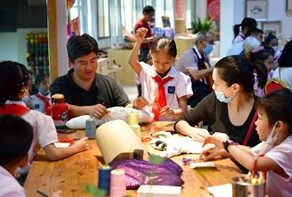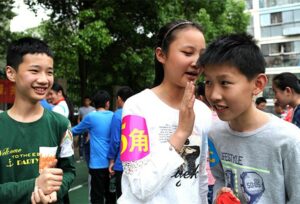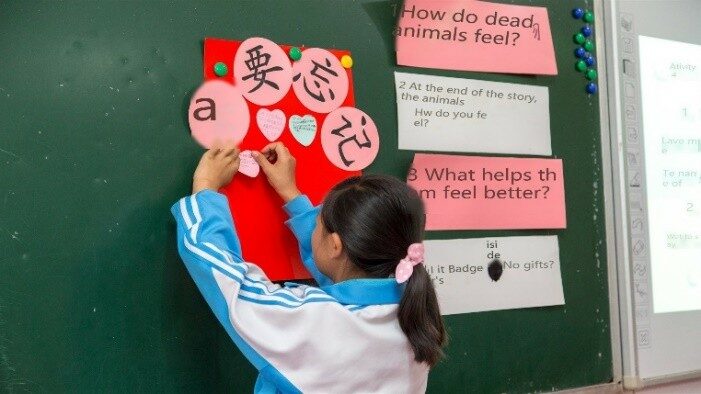It is widely agreed in China that schools focusing only on academic instructions cannot prepare children for the fast-changing world. Children should not leave school with academic proficiencies only; they must also demonstrate adequate social and emotional skills to adapt to changes, make healthy decisions that positively affect their lives, and choose to become engaged citizens. The Ministry of Education (MOE) and UNICEF introduced international technical support from the ICAMnet team and initiated the pilot ICAM SEL programme designed by the ICAMnet team and based on the ICAM programme in Guizhou Province, Yunnan Province, Chongqing Municipality, Guangxi Zhuang Autonomous Region, and Xinjiang Uygur Autonomous Region
The China ICAM SEL programme, aims to improve the whole school climate through an integrated approach, centring on capacity building of principals and teachers to ensure that children feel safe, respected, confident and happy in schools; that they can acquire knowledge and skills to recognize and manage emotions, set and achieve positive goals, demonstrate care and concern for others, establish and maintain positive relationships, make responsible decisions, and handle interpersonal situations effectively.





